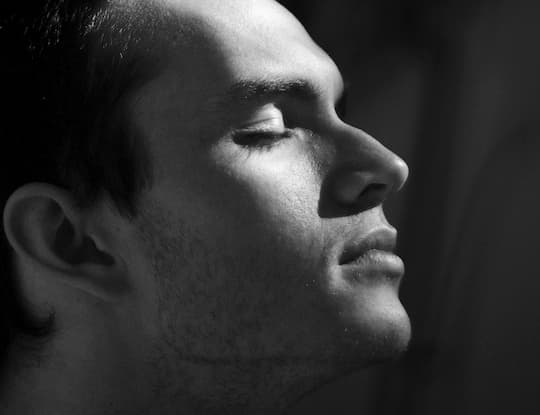Introvert personality traits mean a person may make a better psychologist, enjoy alone time, have more satisfying relationships and more…
An introvert is not necessarily shy, but is particularly interested in their own mental states.
They may seem reserved, but an introvert gains energy through reflecting internally.
As a result, an introvert tends to enjoy activities that are done alone, such as reading and writing.
Typically, an introvert is not particularly attracted to large groups and gatherings, preferring a quieter environment.
That does not necessarily make an introvert socially anxious.
Being less social is a preference, not a pathology.
What is an introvert personality?
Introversion is one of the five major traits of personality.
A person who is introverted tends to focus more inwards, concentrating on their own thoughts, feelings and moods.
As a result, they seek less stimulation from the outside world.
Like all personality traits it exists on a continuum, in this case with extroversion at the other end.
So, most people have a balance of introverted and extroverted traits — this is known as an ambivert.
However, some people are at the extreme end of the spectrum.
Strong introverts tend to be reserved, quiet and introspective.
They find too much social interaction draining and tend to gain energy from spending time alone.
Causes of introversion vs extroversion
A popular early theory of introversion and extroversion by the psychologist Hans Eysenck argued that it is down to the excitability of the brain.
Introverts, he argued, naturally have high cortical arousal levels, so need less stimulation from social interaction.
Like other personality traits, though, genetics and the environment likely interact to influence people’s levels of introversion.
Studies of twins suggest around 50 percent of introversion is inherited.
It is certainly true that people who are inhibited as children tend to grow up into reserved introverts.
Inhibition as a child involves cautious, fearful and avoidant behaviour towards unfamiliar objects, people and situations.
Types of introvert traits
Like all human being, introverts come in all sorts of different types.
It can be difficult to tell some people are introverts because the way they behave may mask it.
Another kink is that people often have a mix of introverted and extroverted traits.
One study has suggested that introverts come in four different types:
- A social introvert: the classic introvert who prefers small groups to crowds.
- An anxious introvert: shy people who want to interact with others, but are afraid.
- A thinking introvert: daydreamers with creative imaginations.
- An inhibited/restrained introvert: those who think before they act.
Common signs of an introvert personality
Some of the most commonly cited signs of introversion are:
- Being around people drains your energy
- Preferring a small group of close friends
- Enjoying solitude
- High self-awareness
- Preferring to be quiet
- Learning by watching
- Stimulation leaves you distracted and unfocused
However, here are some more less well-known signs of introversion.
1. An introvert makes a better psychologist
People who are sadder and more introverted are the best natural psychologists, scoring highest on tests of human nature.
Being a good natural psychologist stems from having a more accurate view of oneself and of others.
The fact that introverted people do better on these tests is fascinating, Mr Gollwitzer, the study’s author, said:
“It could be that the melancholic, introverted people are spending more time observing human nature than those who are busy interacting with others, or they are more accurate at introspection because they have fewer motivational biases.
Either way, though, this demonstrates an unappreciated strength of introverts.”
2. Introverts prefer mountains
‘Introverts prefer mountains’ is one of the conclusions of a series of recent studies on the link between personality and place.
People view mountainous areas as being more peaceful and calm.
Extroverts, meanwhile, tend to prefer flat, open areas.
These are viewed as more exciting, sociable and stimulating.
The study also found that introverts are, indeed, more likely to live in mountainous areas, while extroverts tend to live on the flat.
3. Introvert alone time
Introverts prefer to have more alone time.
Wanting to be alone is not necessarily a red flag for depression or isolation.
In fact, choosing solitude can be a sign of self-acceptance and personal growth.
Periods of solitude can provide spiritual renewal, critical self-reflection and even a chance for creative expression.
Wanting to be alone is not necessarily about shyness or loneliness.
Dr Virginia Thomas, an expert on personality, says both introverts and extroverts need solitude:
“Introverts just need more of it.
Our culture is pretty biased toward extroversion.
When we see any sign of shyness or introversion in children, we worry they won’t be popular.
But we overlook plenty of well-adjusted teens and young adults who are perfectly happy when alone, and who benefit from their solitude.”
4. Introverts deal better with poor sleep
Introverts are naturally better at dealing with sleep deprivation after a busy day of social interactions, research finds.
Despite being kept awake for 22 hours, introverts remained more alert than extroverts when tested the next day.
It may be because introverts generally have higher cortical arousal.
In contrast, extroverts are vulnerable to sleep loss after interacting with many people during the day.
The introvert’s ability to resist sleep loss could be down to genetic factors.
5. Introvert relationships are satisfying
Introverted women are less likely to cheat on their partner.
An introvert tends to enjoy more solitary activities, preferring to think before they talk and enjoys focusing their mental energy inwards.
In contrast, women who are highly extroverted are more likely to cheat on their partner.
Similarly, women who are introverted are satisfied with their marriages for longer.
6. Introvert musical preference
There are some links between musical preferences and personality.
Those listening more to rock, indie or alternative music tend to be more introverted.
Also, a preference for emo music reveals an emotionally unstable, introverted personality.
7. Better general knowledge
An introvert with a more stable personality is like to have higher levels of general knowledge.
General knowledge — or as psychologists call it, crystallised intelligence — is one of two broad aspects of intelligence.
General knowledge is often linked to success in life because innate talent is not enough — application matters.
8. Introversion vs. shyness
Many people make the mistake that introversion is the same as shyness.
Extroverts assume that introverts do not want to interact because they are fearful.
The truth is that many introverts do not get the same pleasure out of social interactions as extroverts, so they avoid it.
An introvert frequently chooses to stay away from others, but is not afraid to go near them.
Being less social is a preference, not a pathology.
Introversion and social anxiety
Social anxiety involves worrying about being embarrassed or humiliated in front of others.
It is more than being shy — the fear can be so great that the social situation can only be born with considerable distress.
While introverts are not necessarily socially anxious, the personality trait can put them at a higher risk in combination with other factors.
The two personality traits that mark out people with social anxiety are being introverted and emotionally unstable.
People who are emotionally unstable — also known as neuroticism — often experience higher levels of anxiety.
The combination of introversion and emotional instability is the ‘typical’ form of social anxiety disorder.
.










